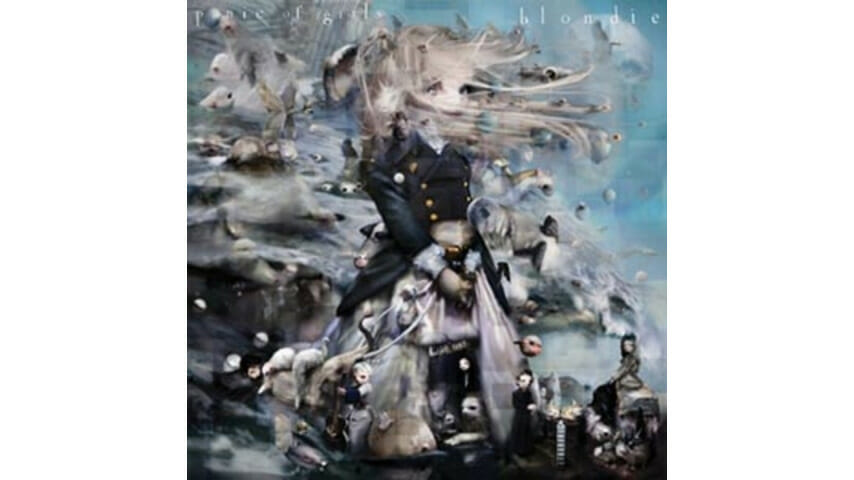Blondie: Panic of Girls

When new wave erupted on the back-end of punk, there was Blondie, all crisp beats, silent screen star peroxide beauty and a sense of ‘50s pop undertow that was equal parts innocence and pulp fiction knowing. Fronted by the soignée Deborah Harry, a former Playboy Bunny, and anchored by Chris Stein, a lean guitarist who recognized the palpable collision that was vintage pop with punk’s aggression, the band created an almost art project that blazed trails and winked at those bright enough to get that this wasn’t just another fad.
The amyl nitrite-feeling soprano wielded by Harry belied that cold knife to the throat force that she actually packed, and it instilled in her an urgent, deadly desperation. This wasn’t pillow-swallowing writ large, but a sense of the hunter being drawn by the game— be it the disco-throb “Call Me,” the techno-reggae-rap of “Rapture” or the girl group “Hanging On The Telephone.”
With Panic of Girls, nothing has changed: the Blondie allure remains potent as ever: polyrhythmic, organic, dance-floor current and always driven by waves of sangfroid postmodern feminism; the first spawn of CBGBs carve grown-up punk for a new millennium.
-

-

-

-

-

-

-

-

-

-

-

-

-

-

-

-

-

-

-

-

-

-

-

-

-

-

-

-

-

-

-

-

-

-

-

-

-

-

-

-








































